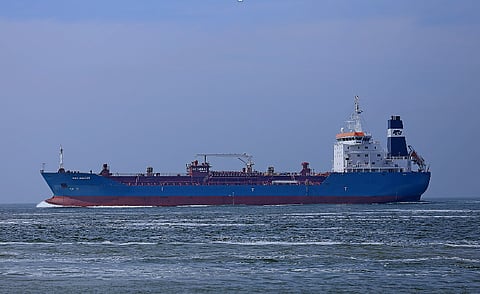

British Columbia Premier David Eby is discouraging a potential new oil pipeline from Alberta to the West Coast and is standing firm on the tanker ban, reaffirming B.C.’s commitment to protecting coastal waters and local economies.
“What is obvious to me, and has yet to fully sink in for some individuals, which is that there is no pipeline project across the north," Eby said recently. "There is no route, there is no proponent, there is no financing. Simply because the premier of Alberta would like to get rid of the oil tanker ban on the North Coast does not mean that anybody wants to build this pipeline. It would cost 40 to $50 billion."
Eby added, "It would require navigating a consensus at the provincial and coastal First Nations level that has a different approach to growing our economy by developing our coast. And so I don't, I'll be blunt, I don't see any prospect of a pipeline unless it is fully taxpayer funded and the federal government forces it through over provincial and indigenous objection."
The Oil Tanker Moratorium Act (Bill C-48), passed in 2019, prohibits large crude-oil tankers carrying more than 12,500 metric tonnes of persistent oils from docking or loading along B.C.’s north coast.
The stance comes even as the Trans Mountain Expansion (TMX) pipeline — fully operational since May 1 2024 — now moves up to 890,000 barrels per day of Alberta crude to the Westridge Marine Terminal in Burnaby, expanding export capacity to Asia and the U.S. West Coast.
According to Clear Seas Centre for Responsible Marine Shipping, hundreds of oil and refined-product tankers already transit B.C. waters annually, including vessels bound for Washington-state refineries and others linked to the Trans Mountain route.
At the CERAWeek 2025 energy conference in Houston on March 10, Alberta Premier Danielle Smith indicated a desire to do more business with the US.
“Alberta is and will continue to supply energy to the United States and support America’s ambitions of global energy dominance.”
She added, “There’s a number of different pipeline projects that would allow us to increase the amount of oil coming to the United States, if they’re interested in partnering with us.”